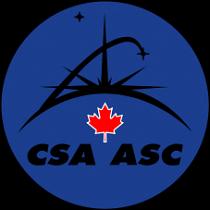Revolutionizing Medical Technology for Earth and Space
(CSA) -- State-of-the-art medical technology being developed to rapidly diagnose the health of astronauts in space could one day become standard equipment in your doctor’s office. The Canadian Space Agency is partnering with leading Canadian researchers to accelerate the development of these technologies and applications that may change how patients are diagnosed—both in space and here on Earth.
In providing quality healthcare, Canadian medical practitioners routinely face many of the same challenges as those dedicated to caring for astronauts. For example, diagnosing and treating medical conditions quickly to improve the health of patients. This can be even more challenging when the patient does not have access to readily available medical care, due to reduced mobility or when the patient is located in remote or isolated locations. Using highly portable technology could offer patients medical diagnoses in their home community, allowing clinicians to deliver quality healthcare in a more timely manner. There are many parallels with astronauts, as they are unable to send samples back to Earth for analysis. As the international space exploration community begins to focus more on distant destinations, such as the Moon or Mars, autonomous biodiagnostic technology will be critical to keeping the crew healthy during long-term missions.
The Canadian Space Agency is funding two unique space projects designed to accelerate how patients—both in space and here on Earth—could be diagnosed by providing clinicians with life-saving, point-of-care tools. Lab on a CD, led by Dr. Michel G. Bergeron of the Infectious Disease Research Centre at Laval University, and Microflow developed by the National Optics Institute (INO), will use space as a test bed to accelerate the development of smaller, cheaper, and faster medical technology that can process and analyze medical samples on orbit, while supporting scientific research aboard the International Space Station (ISS).
Lab on a CD is a prototype of an ultrafast, highly sensitive and fully automated medical diagnostic test unit that is close to a major breakthrough: real-time diagnostics of infectious diseases at the patient’s point of care. Whereas existing tests can take days to weeks to be conducted in a laboratory, Lab on a CD can perform sophisticated genetic analysis of samples in just a few minutes. As the instrument’s name suggests, the microfluidic device is roughly the size and shape of a CD and operates in a similar way: it spins a sample to create artificial gravity conditions to enable complex experimental steps to be performed automatically. With $150,000 in funding from the Canadian Space Agency, Dr. Bergeron and his team at Laval University have successfully tested the technology in microgravity during parabolic flights. Supported by Canada’s Cooperation Agreement with the European Space Agency, the project has received $1.1 million to carry out the development of this prototype thro ugh the European Life and Physical Sciences Program. It is through, this program that the project is currently developing a concept for a system that will perform bioanalysis on the ISS.
Microflow is a technology demonstration platform developed by the National Optics Institute (INO). Following an initial investment of $300,000 for testing, the Canadian Space Agency awarded INO a contract of $2.3 million in 2011 to design, build, and test the first generation of a transportable flow cytometer for use on the ISS. Flow cytometers are common research or clinical laboratory instruments, and are used for a range of bioanalysis and clinical applications to diagnose health disorders, ranging from detecting blood cancers and immunological pathologies in human beings to identifying bacterial pathogens in food or water. Capitalizing on INO’s expertise in lasers, and fibre optics, the goal of Microflow is to test INO’s novel fibre-optic approach, enabling the realization of a miniaturized, portable and robust cytometer technology. This technology is ideal for use in space and in-field terrestrial bioanalysis. The Microflow test platform will be introduced on the ISS in December 2012 during the flight of Canadian Space Agency astronaut Chris Hadfield.
Comments
There are 0 comments on this post













